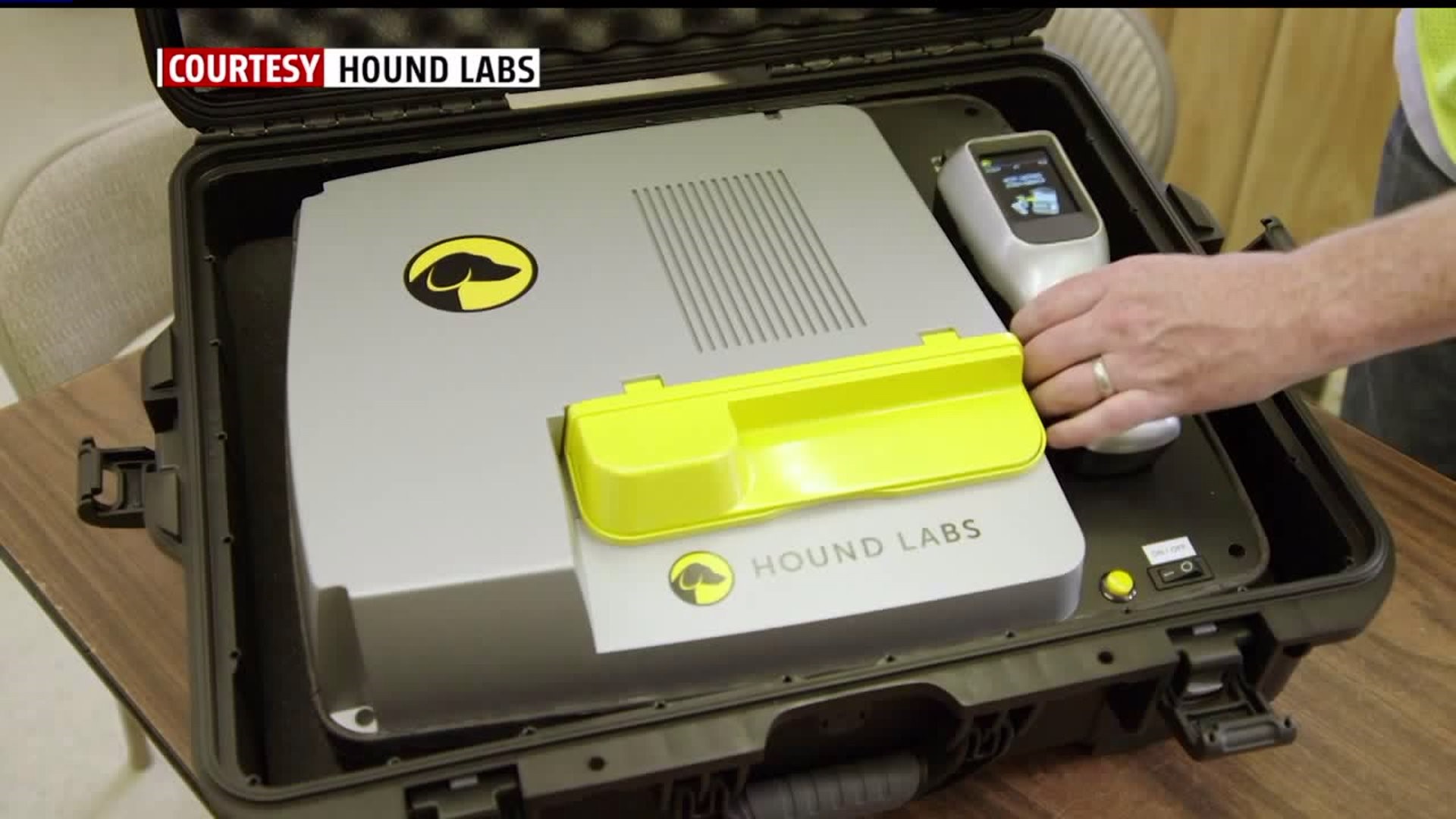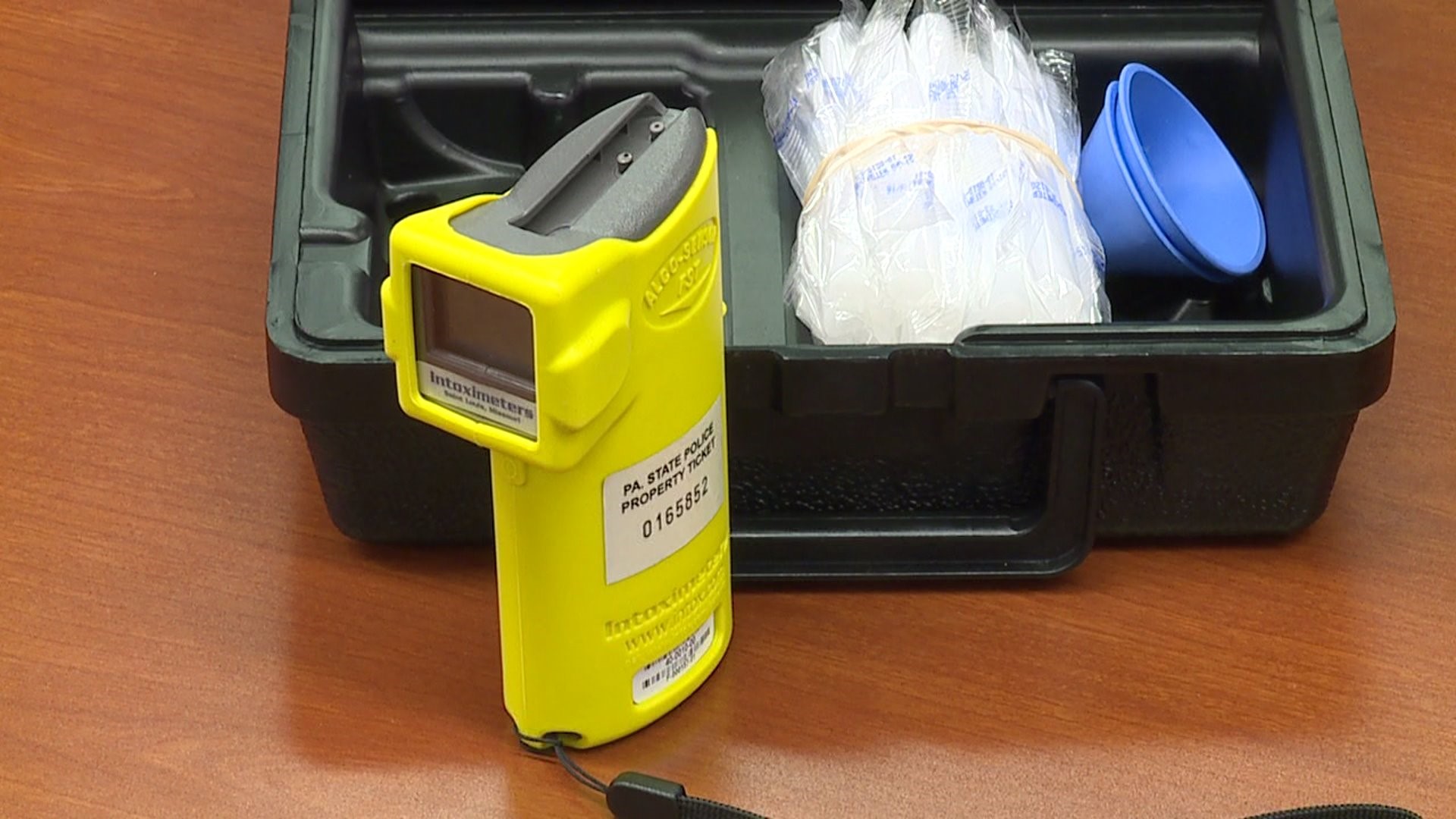Marijuana users have a new reason to think twice before getting behind the wheel.
Marijuana technology is ready to hit the market as more states legalize medical and recreational use. And, when the technology debuts, it will make it easier for police to put the brakes on impaired drivers.
Researchers at the University of Pittsburgh admit a blood test is still considered the 'gold standard' for testing for marijuana. Other drug testing methods rely on urine or hair. But, the researchers hope their new technology will now help police identify impaired drivers in the field through the breath. And, in the future, with further development, they believe the technology could possibly help states research and set limits for impairment.
Pennsylvania's DUI law states that any amount of marijuana in someone's system is considered a DUI because marijuana is still a Schedule I drug on the federal level.
The law reads: "Controlled substances--An individual may not drive, operate or be in actual physical control of the movement of a vehicle under any of the following circumstances: (1) There is in the individual's blood any amount of a:
(i) Schedule I controlled substance, as defined in the act of April 14, 1972 (P.L.233, No.64), known as The Controlled Substance, Drug, Device and Cosmetic Act"
But, the law points out, for purposes of prosecution and blood testing to determine the amount of a Schedule I drug, it relies on the Department of Health: "For purposes of blood testing to determine the amount of a Schedule I or nonprescribed Schedule II or III controlled substance or a metabolite of such a substance, the Department of Health shall prescribe minimum levels of these substances which must be present in a person's blood in order for the test results to be admissible in a prosecution for a violation of section 1543(b)(1.1), 3802(d)(1), (2) or (3) or 3808(a)(2)."
However, unlike alcohol where a driver is considered impaired at a certain level (.08) in Pennsylvania, there is no level set yet in the state in which a driver is considered impaired on marijuana. Pitt researchers said, many more studies need to be done to reach a conclusion on impairment when it comes to THC, the component in marijuana that gives a high.
Pitt researchers Alex Star and Ervin Sejdic developed the device capable of measuring THC alongside a team at the university. The technology uses carbon nanotubes 100,000 times smaller than human hair. They said, the THC molecule in the breath binds to the surface of the nanotubes and change their electrical properties. The device then signals when THC is present.
The prototype looks similar to a breathalyzer for alcohol. Read more about the device here.
“In legal states, you’ll see road signs that say, “Drive High, get a DUI,’ but there has not been a reliable and practical way to enforce that,” said Star. “There are debates in the legal community about what levels of THC would amount to a DUI, but creating such a device is an important first step toward making sure people don’t partake and drive.”
But, the University of Pittsburgh is not the only place ready to debut THC detecting technology. Hound Labs, based in California, has developed technology as well.
The handheld technology stores 100 encrypted results accessible via a touchscreen or download, making the device easy for police to store results. The device also automatically stores two breath samples in separate compartments within the cartridge for immediate processing in the field and a second sample for future testing.
Hound Labs cites research at the University of California, San Francisco that confirms THC is detectable in breath for up to three hours after smoking marijuana. That three-hour timeframe researchers believe, is within the timeline that people are more likely to be impaired.
Medical and recreational marijuana sales in the United States are poised to reach more than $12 billion, according to the 2019 Marijuana Business Factbook. In Pennsylvania, medical marijuana has been legal since 2016. The Governor has also put out a call this year for the General Assembly to seriously debate recreational use.
WATCH FOX43'S FULL INTERVIEW WITH RESEARCHERS FROM PITT:


